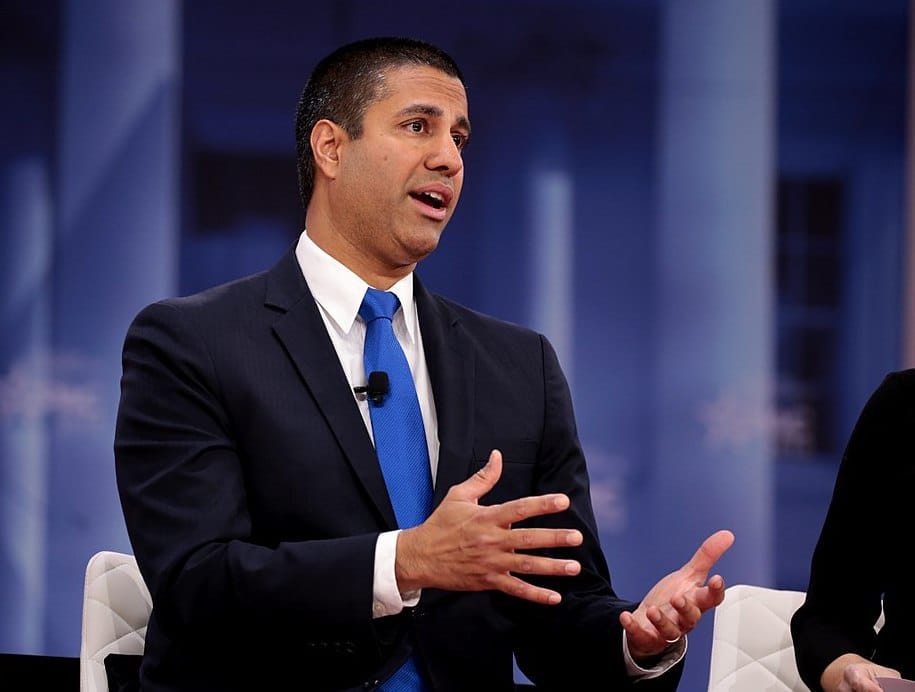FCC Digital Divide Steps Successful, Says Agency Chairman Ajit Pai
May 19, 2020 — The Federal Communication Commission’s measures to address the digital divide have been overwhelmingly effective, Chairman Ajit Pai claimed in a teleconference Tuesday. The teleconference, hosted by House Communications and Technology Subcommittee Chairman Mike Doyle, D-Pa., and Ranki
Elijah Labby

May 19, 2020 — The Federal Communication Commission’s measures to address the digital divide have been overwhelmingly effective, Chairman Ajit Pai claimed in a teleconference Tuesday.
The teleconference, hosted by House Communications and Technology Subcommittee Chairman Mike Doyle, D-Pa., and Ranking Member Bob Latta, R-Ohio, provided Pai an opportunity to update committee members on the efforts of the FCC to expand telehealth and broadband infrastructure.
The agency has handed out millions of dollars in funds to municipalities and other organizations to develop such infrastructure in rural areas and has called on broadband companies to provide complementary service to those without it.
“American consumers are relying on broadband to telework, take classes online, to consult with doctors remotely and talk with relatives they can’t see in person,” Pai said. “And that’s why, on March 13 … I called on America’s broadband and telephone service providers to pledge that for 60 days, no consumer or small business would have service cut off or be charged late fees because of disruption caused by the pandemic.”
On April 30, Pai announced that the guidelines would extended until June 30 to correspond with lengthening stay-at-home orders.
“There have been more companies — specifically 774 of them — who have committed to this extension,” the chairman said.
Legislation similar to Pai’s recommendations for broadband and telephone providers is currently moving through Congress. The HEROES Act would subsidize providers, enabling them to offer free service to affected individuals and making it illegal to punish those individuals for overuse. Members of the Democratically-controlled House approved the bill last week.
Additionally, the agency has given funding to promote telehealth services for those who cannot safely get medical care in person.
“We’ve already funded 82 health care providers in 30 states,” Pai said. “In Pennsylvania, for example, we awarded funding to the UPMC Children’s Hospital of Pittsburgh to provide telehealth services to children who have received organ transplants and are thus immunocompromised, putting them at higher risk for COVID-19.”
Such telehealth services have become increasingly popular, and some experts say that they’re not likely to go away after the virus has passed.
Pai said it was particularly rewarding to see the technologies working firsthand, such as in the case of a boy at the Cincinnati Children’s Hospital who received surgery and was particularly vulnerable to the virus.
“And the doctor is handing his mother a device, saying, ‘This device will now help us keep track of your son when you go home, so you don’t have to come back and risk exposure to the coronavirus pandemic,’” he recounted. “And it’s thanks in part to a grant from the FCC, and so I want to thank all of you in Congress for helping us make that happen.”









Member discussion